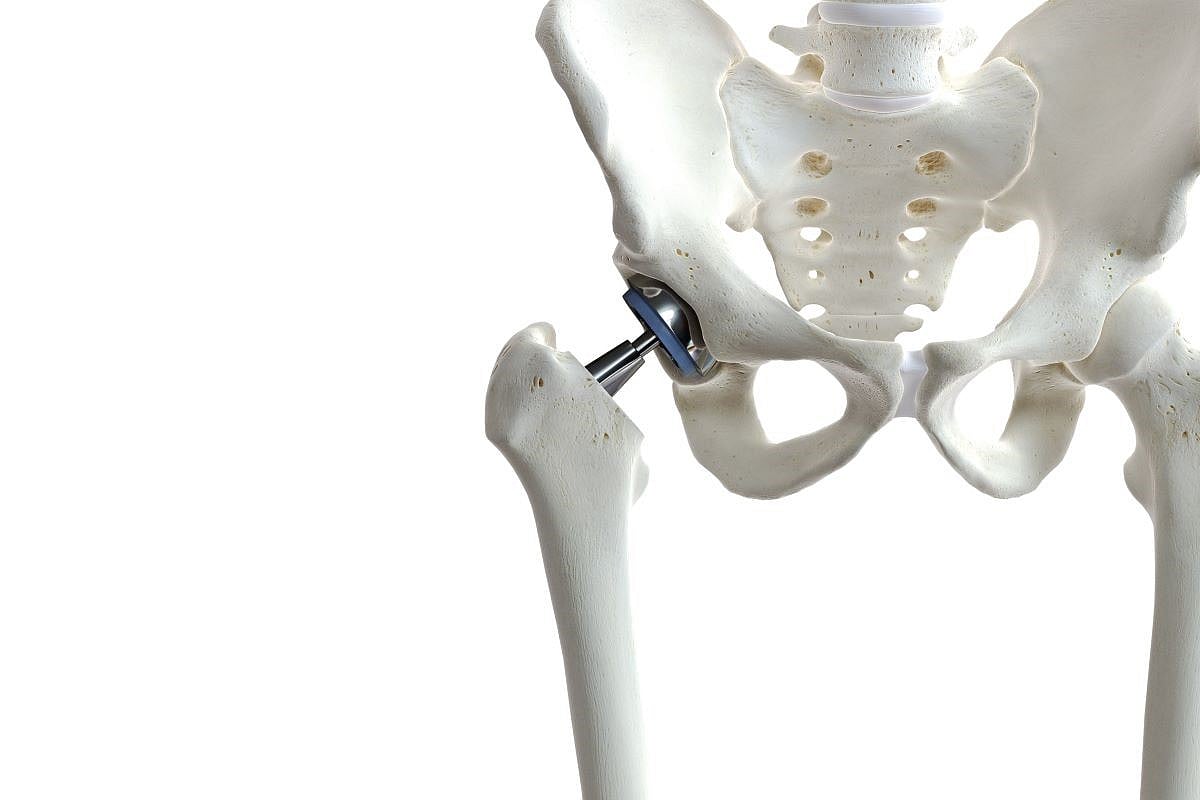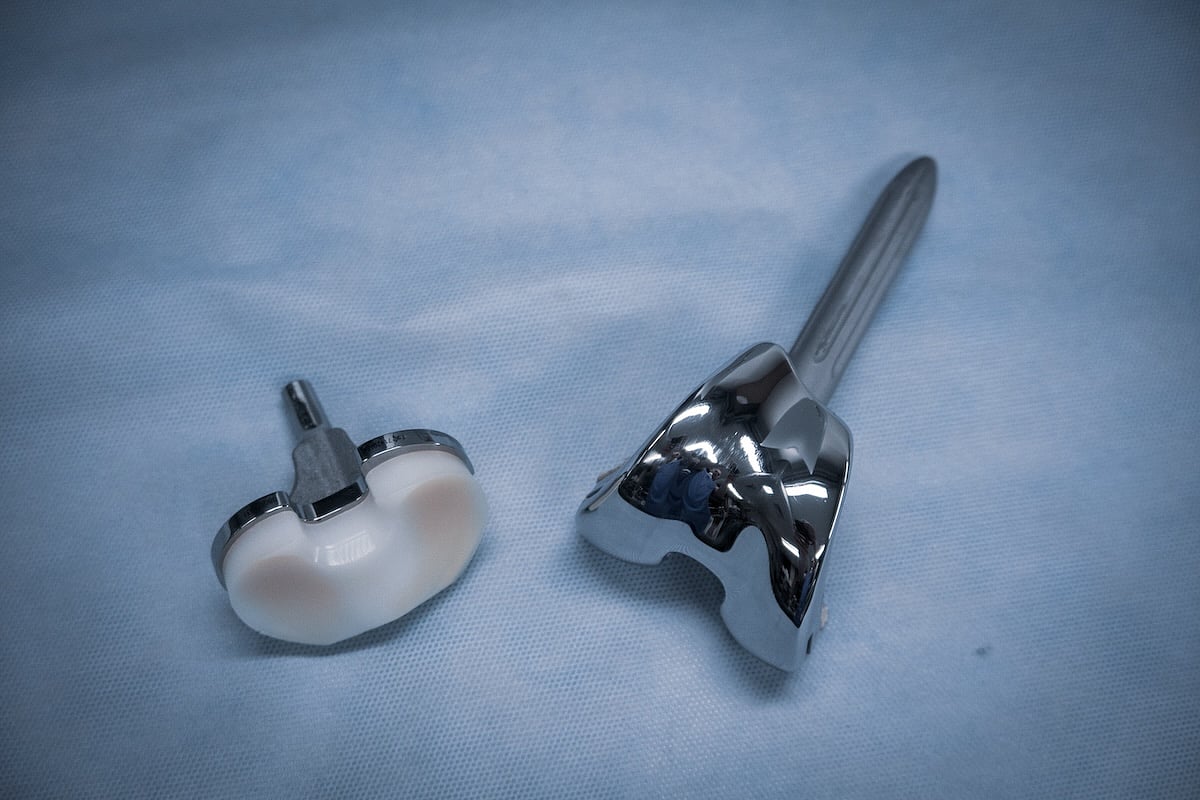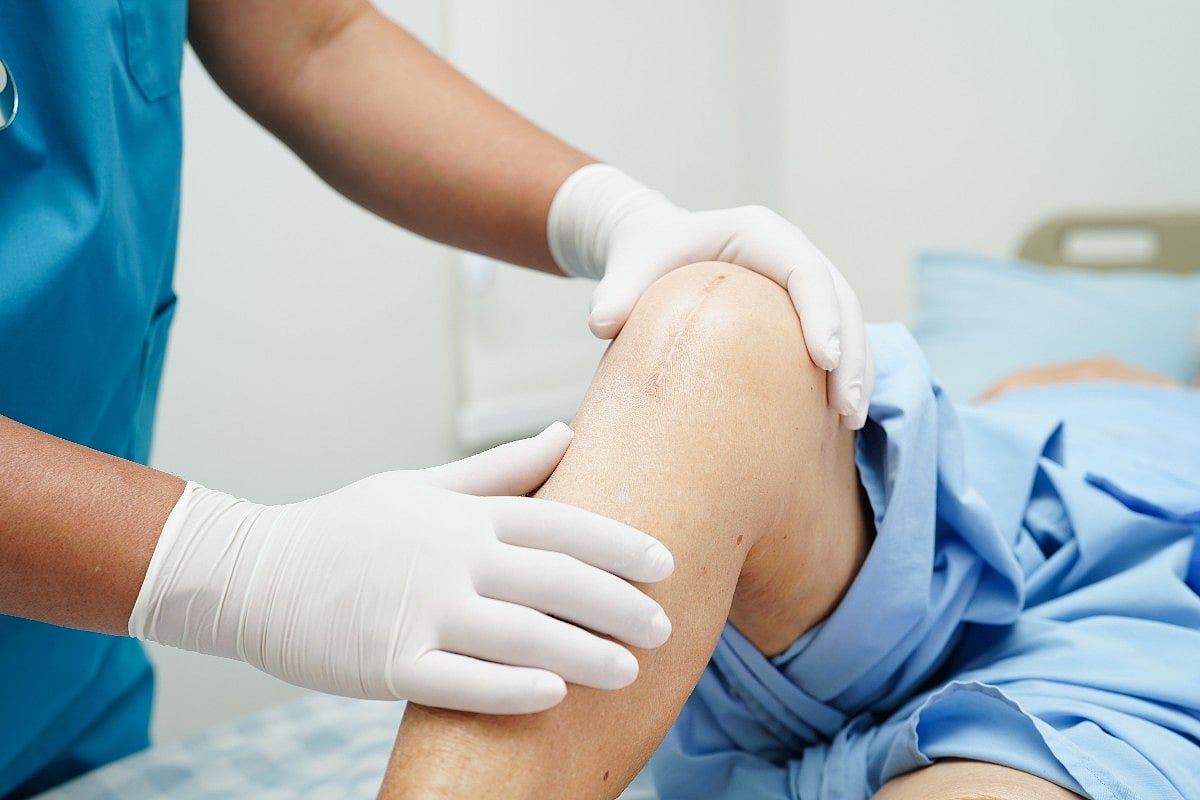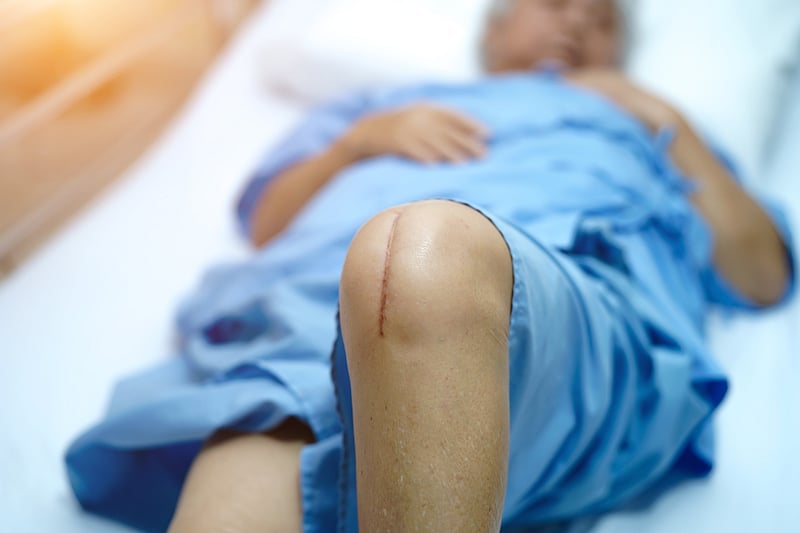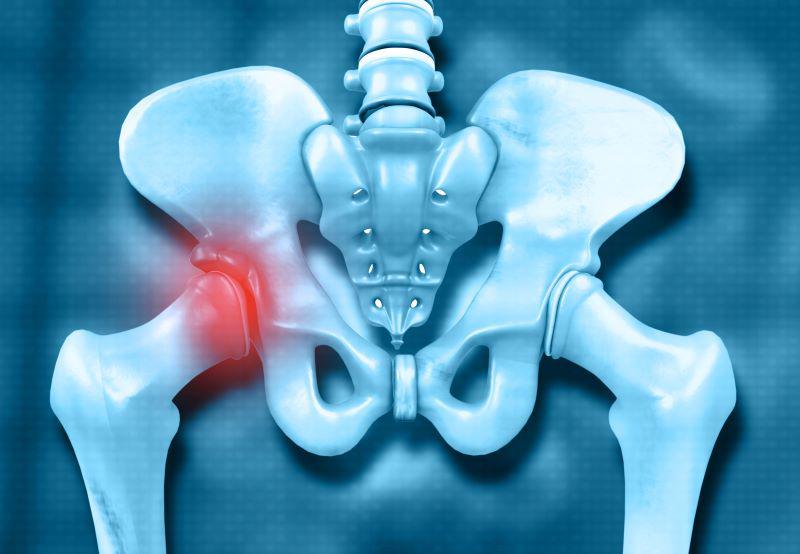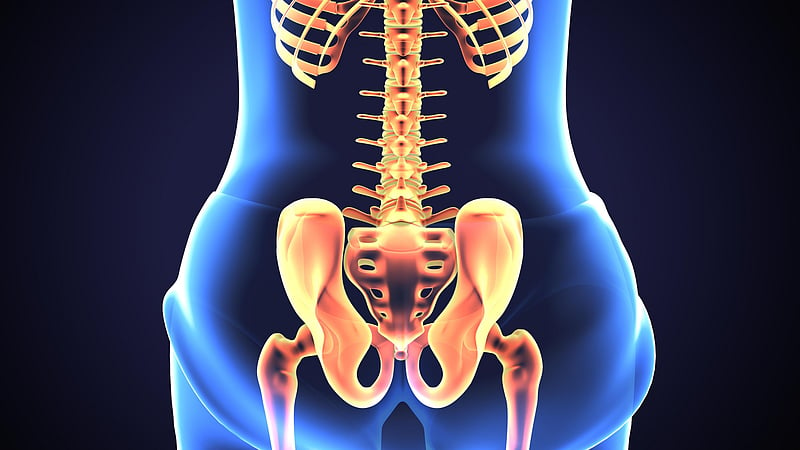Manténgase sano!
Resultados de su búsqueda "Artificial Hips".
Resultados de noticias de salud - 21
Folks are less likely to recover successfully from a total hip replacement if they have poor muscle quality going into the procedure, a small-scale study says.
Patients whose MRI scans revealed fatty hip muscle prior to surgery were more likely to perform poorly ...
- HealthDay Reporter
- Dennis Thompson
- |
- April 23, 2025
- |
- Página completa
Jason Cutter had been feeling pain in his hips for years, and it had started to put a dent in his activities as an amateur hockey player and outdoorsman.
Cutter, 50, chalked up his hip problems to aging, insufficient stretching and strain from the heavy tool belts he wore during his side hustle as a house remodeler.
But former professional hockey players in Cutter’s rec league...
- HealthDay Reporter
- Dennis Thompson
- |
- April 17, 2025
- |
- Página completa
Curious what recovery really looks like after a hip replacement?
Dr. Ayesha Abdeen, chief of hip and knee replacement surgery at Boston Medical Center, shares what to expect at every step along the way -- from...
- HealthDay Reporter
- Ayesha Abdeen, MD, Chief of Hip and Knee Replacement Surgery, Boston Medical Center
- |
- April 13, 2025
- |
- Página completa
Love pickleball, but facing a knee or hip replacement?
Odds are you’ll return to the court in no time, a new study suggests.
More than 7 of 10 regular pickleball players pick up their paddle promptly following joint replacement surgery.
...
- HealthDay Reporter
- Dennis Thompson
- |
- March 12, 2025
- |
- Página completa
MONDAY, Feb. 24, 2025 (HealthDay news) -- Even slight weight loss spurred on by cutting-edge GLP-1 drugs can help prevent replacement knees and hips from wearing out, a new study suggests.
People with new knees and hips are significantly less likely to need follow-up surgery to fix wear and tear on their artificial joint if they lose weight using
Many seniors suffer long-term health issues after a hip fracture, even after hip replacement surgeries.
Now, research shows that a patient's mental health could be crucial to how well they bounce back in the years after these injuries.
"Addressing overall mental health during the recovery process from hip fractures is crucial," concludes study senior author and Harvard Univers...
- HealthDay Reporter
- Ernie Mundell
- |
- February 6, 2025
- |
- Página completa
Brent Ruch, a collegiate basketball center, opted to have his left knee replaced at age 35 after struggling with pain for years.
“Walking with a limp and living with a consistent aching pain was physically and emotionally difficult. I didn’t want to live like that,†said Ruch, who lives in a suburb of Chicago.
When his doctor told him he’d be pla...
- HealthDay Reporter
- Dennis Thompson
- |
- July 24, 2024
- |
- Página completa
Hip replacement is a major, arduous elective surgery, and rehabilitation afterwards takes time, according to an expert from Johns Hopkins Medicine in Baltimore.
It'll also take coordinated planning between yourself, your care team and your family and caregivers, said Dr. Savya Thakkar, an orthopedic surgeon ...
- HealthDay Reporter
- Ernie Mundell
- |
- May 21, 2024
- |
- Página completa
Millions of people undergo joint replacement surgery every year. To prevent infection, doctors often give them a second antibiotic -- but new research suggests this can backfire.
Adding a second antibiotic at the time of hip and knee replacement surgery may actually increase infections, researchers in Australia found.
"Given the number of joint replacements performed in Austral...
- HealthDay Reporter
- Cara Murez
- |
- October 19, 2023
- |
- Página completa
If you are in your 90s, is hip replacement surgery too dangerous for you?
That depends, new research shows: While elderly patients have more complications and higher death rates after such a procedure, the surgery can be "appropriately considered."
That's because the risks for total hip replacement depend not just on patients' age, but also on their overall health and fitness.
<...- HealthDay Reporter
- Cara Murez
- |
- August 29, 2023
- |
- Página completa
Hip replacement surgery is safe for HIV patients, a new study shows.
Some surgeons are reluctant to perform total hip replacement surgery on patients with HIV or AIDS, because of concerns about complications, including higher risk of infection, need for repeated surgery and longer hospital stay.
"Patients living with HIV are at a higher risk for orthopedic-related diseases such as o...
- HealthDay Reporter
- Steven Reinberg
- |
- July 31, 2023
- |
- Página completa
Blaming your ailing knees for feeling down?
Unfortunately, even after physical pain eases, healing or fixing an injured joint often does not improve mental health, research shows.
A new study found that anxiety symptoms only improved when a patient had major improvements in physical function.
Depression, meanwhile, did not meaningfully improve even when the improvements to phy...
- HealthDay Reporter
- Cara Murez
- |
- June 30, 2023
- |
- Página completa
An anti-inflammatory drug that has been around for over 2,000 years might help delay a very modern problem: hip and knee replacements.
That's the suggestion of a new study finding that older adults who used the drug -- called colchicine -- were less likely to need hip or knee replacement surgery over the next two years, versus those given placebo pills.
The study, published May 30 i...
- HealthDay Reporter
- Amy Norton
- |
- May 31, 2023
- |
- Página completa
The prices that health insurers agree to pay for joint replacement surgery vary widely and are unrelated to conventional measures of the quality of care.
That's the conclusion of a new study that found who is footing the bill is the biggest influence on the price tag.
Total joint replacements (TJR) -- especially of knees and hips -- are the most common in-hospital surgeries for U.S....
- HealthDay Reporter
- Cara Murez
- |
- December 26, 2022
- |
- Página completa
Patients who have spinal anesthesia while doctors repair a broken hip have more pain and need more prescription painkillers afterward than those given general anesthesia, a new study finds.
Spinal anesthesia i...
- HealthDay Reporter
- Robert Preidt
- |
- June 20, 2022
- |
- Página completa
College basketball player Joey Liedel suffered years of debilitating hip pain that limited his ability to play.
As a freshman at University of Detroit-Mercy, he was in constant discomfort. Eventually, the Erie, Mich., athlete underwent hip surgery and took some time off to get comfortable on the court again.
The 6-foot-1 guard had arthroscopy -- a type of minimally invasive surgery ...
- HealthDay Reporter
- Robert Preidt
- |
- May 15, 2022
- |
- Página completa
If you're one of the estimated one million Americans having total hip or knee replacement surgery this year, some lifestyle changes might improve your chances of a good outcome, an expert says.
Lose weight safely through diet and exercise before surgery, said orthopedic surgeon Dr. Matthew Abdel. The ...
- HealthDay Reporter
- Robert Preidt
- |
- May 7, 2022
- |
- Página completa
Recovering from hip or knee replacement surgery can be tough for anyone, but a new study from one hospital showed that Black patients were less likely than white patients to be satisfied with their care after the procedure.
Researchers reviewed survey responses from more than 2,500 people who un...
- Consumer news
- |
- March 24, 2022
- |
- Página completa
For many people undergoing total hip or knee replacement, same-day surgery is a safe option, new research shows.
Among folks in overall good health, the study of nearly 1.8 million patients found similar post-op complication rates among those who had outpatient joint replacement surgery compared to those who spent a night or two in the hospital.
"Careful patient selection is the ke...
- HealthDay Reporter
- Alan Mozes
- |
- January 19, 2022
- |
- Página completa
Older adults have a higher risk of delirium after hip and knee surgery if they're taking anxiety, depression or insomnia drugs, researchers say.
"Our findings show that different classes of medicine are riskier than others when it comes to causing delirium after surgery, and the older the patients are, the greater the risk," said lead study author Gizat Kassie. He is a postdoctoral resear...
- HealthDay Reporter
- Robert Preidt
- |
- December 13, 2021
- |
- Página completa
It may look like bad news, but a new study says it's not: The number of people younger than 21 who had total hip replacement surgery in the United States jumped from 347 in 2000 to 551 in 2016.
The increase wasn't due to a rise in the number of children with inflammatory arthritis, which often prompts a hip replacement in the very young. That suggests that non-surgical treatments to contr...
- HealthDay Reporter
- Robert Preidt
- |
- November 10, 2021
- |
- Página completa
